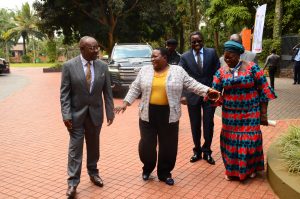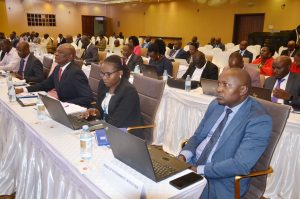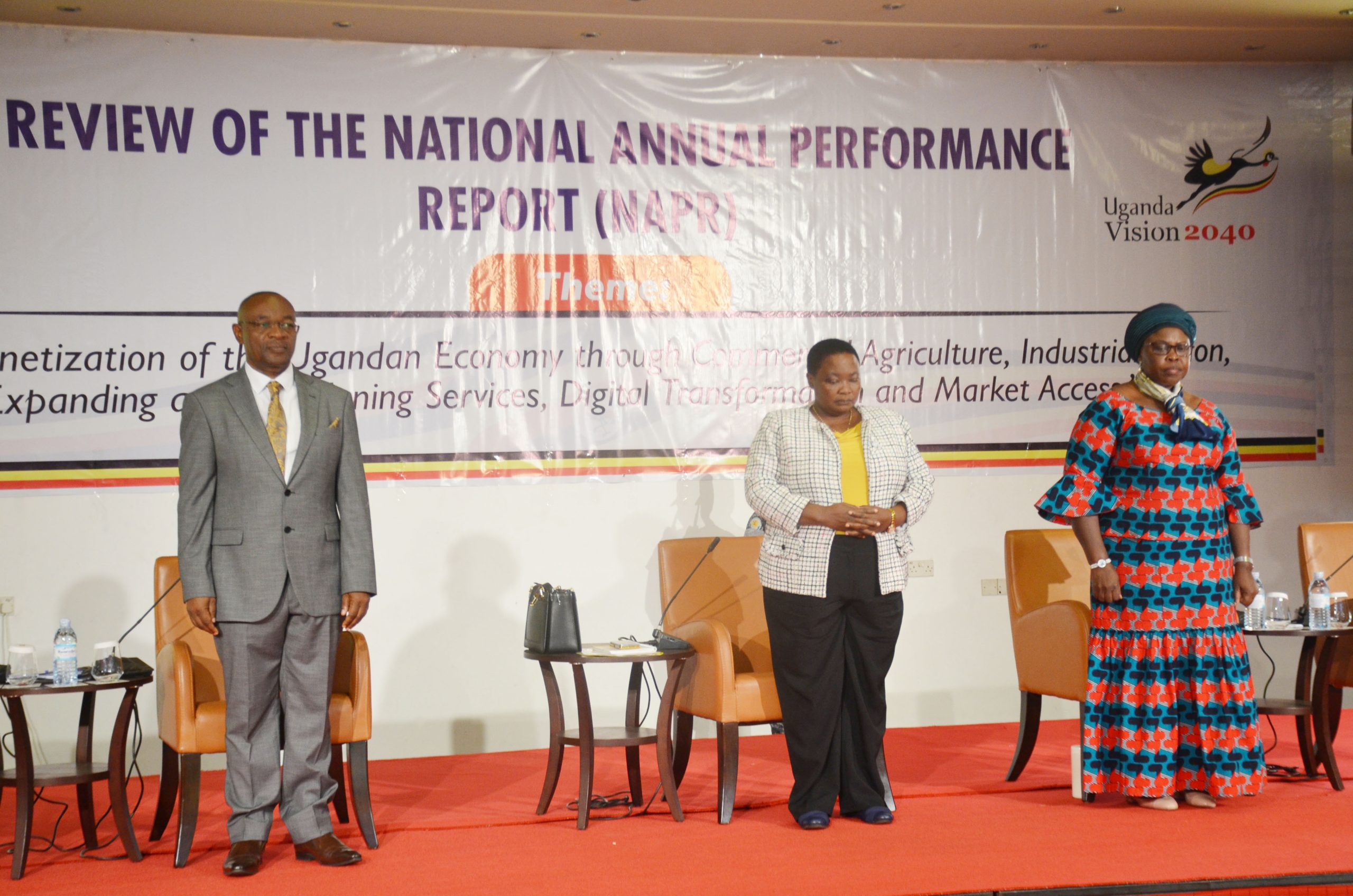By: Ismael Kasooha
MUNYONYO
The Prime Minister of Uganda Robinah Nabbanja has directed the Ministry of Finance Planning and Economic Development to ensure that before any government loans or grants are acquired or signed, the government projects must be fully prepared first including acquisition of the right of way.
This followed reports of challenges of low budget absorption, especially of loans and grants due to bureaucratic processes that delay the right of way for project execution, procurement delays, and inadequate implementation capacity.
“These inefficiencies pose a big cost to the Government through increased commitment fees. To address this challenge, I’m directing the Ministry of Finance, Planning & Economic Development to ensure that before signing any loans/grants agreement, the projects are fully prepared including acquisition of rights of way,” ordered Nabbanja.
Nabbanja made the directive during the opening of the National Annual Performance Review organized by the Office of the Prime Minister at Speke Resort and Conference center Munyonyo in Kampala.
This year’s National Annual Performance Review is the fourth report assessing the implementation of the 3rd National Development plan (NDPIII).
The report has focused on reviewing the overall government performance for the FY 2023/24 based on annual planned Key Result Areas (KRAs) and funds released to deliver service delivery programmes.
Whereas the previous assessments were looking at performance in terms of processes and systems, the current approach looks at holistic systems’ functionality with the NDP III targeted outcome results.

Ministers Raphael Magyezi (left) of Local Government, Dr. Moriku Kaducu (right) Minister of State for Primary Education, Dr. Kenneth Omona (back) Minister of State in charge of Northern Uganda welcoming the Rt. Hon. Prime Minister Robinah Nabbanja at Munyonyo
“The purpose is to measure the contribution of each programme’s performance, tailored towards increasing average household incomes and improving the quality of life of Ugandans,” noted Nabbanja.
Nabbanja said that the objective of the review, therefore, is to provide credible and timely information to policy makers, by highlighting what has been delivered, what has not, and the reason why for better planning.
“Colleagues, you should note that key lessons learnt during the implementation of previous strategies should enable us improve the planning and budget processes for the NDP IV whose roadmap is already in place, be well-coordinated and appropriately guided to facilitate the rationalization and prioritization of the available resources,” she said.
The other key area covered by the assessment is the progress of implementation of the NRM Manifesto (2021-2026).
In May 2021 the country welcomed a new NRM government that marked the beginning of a new manifesto.
The implementation thereof is work in progress that builds on the achievements of the previous Manifesto (2016-2021).

A section of participants during the National Annual Performance Report Review at Munyonyo
“The NRM Government made 809 manifesto commitments to the people of Uganda and as at July 2024, the performance assessment against the commitments indicate that 35% have been achieved and 49% are work in progress and on track while 16% are the commitments whose implementation is still pending,” Nabbanja noted.
The assessment also covered the progress implementation of the Sustainable Development Goals (SDGs) where it was noted that considerable progress has already been realized.
The 17 SDGs have 169 targets with 232 global indicators, of which 201 indicators are relevant to Uganda.
“I am glad to report to you that Uganda is ranked in the 18th position with an overall score of 54.88% (compared to the regional average of 52.7% in 2020),” she said.
The Premier said that the above impressive performance is attributed to several policies, programs and strategies undertaken by the National Resistance Movement Government which include among others, Operationalization of the Parish Development Modal (PDM), Focusing on Science Innovation and Development; Implementation of the Industrialization policy (establishment of regional industrial parks) social protection programs for women , youth and the elderly, Job creation and empowerment programmes through youth skilling, UPE, USE, open refugee protection and management policy, among others.
Nabbanja commended all the Ministers and the Technical Heads of various Programme Secretariats and the associated Ministries, Departments, Agencies (MDAs), Local Governments and the Development Partners for their contribution to this review exercise.
The Minister for Local Government, Raphael Magyezi said that the economy is progressing steadily with better indicators projected in the near future.
The report highlights a downward trend for poverty levels across the country with better performance of the targeted program as indicated in the NRM Manifesto of 2021-2026.
Poverty levels have decreased in all sub regions in the country apart from Karamoja and Acholi which have seen an increase in poverty levels.
However, Magyezi observed that Uganda is not doing well in financing external loans which he attributes to delay to providing counterpart funding to a number of projects on the borrowed funds.
Despite improvements in the government programmes, Uganda continues to lose its wetlands cover at a high rate.
End





